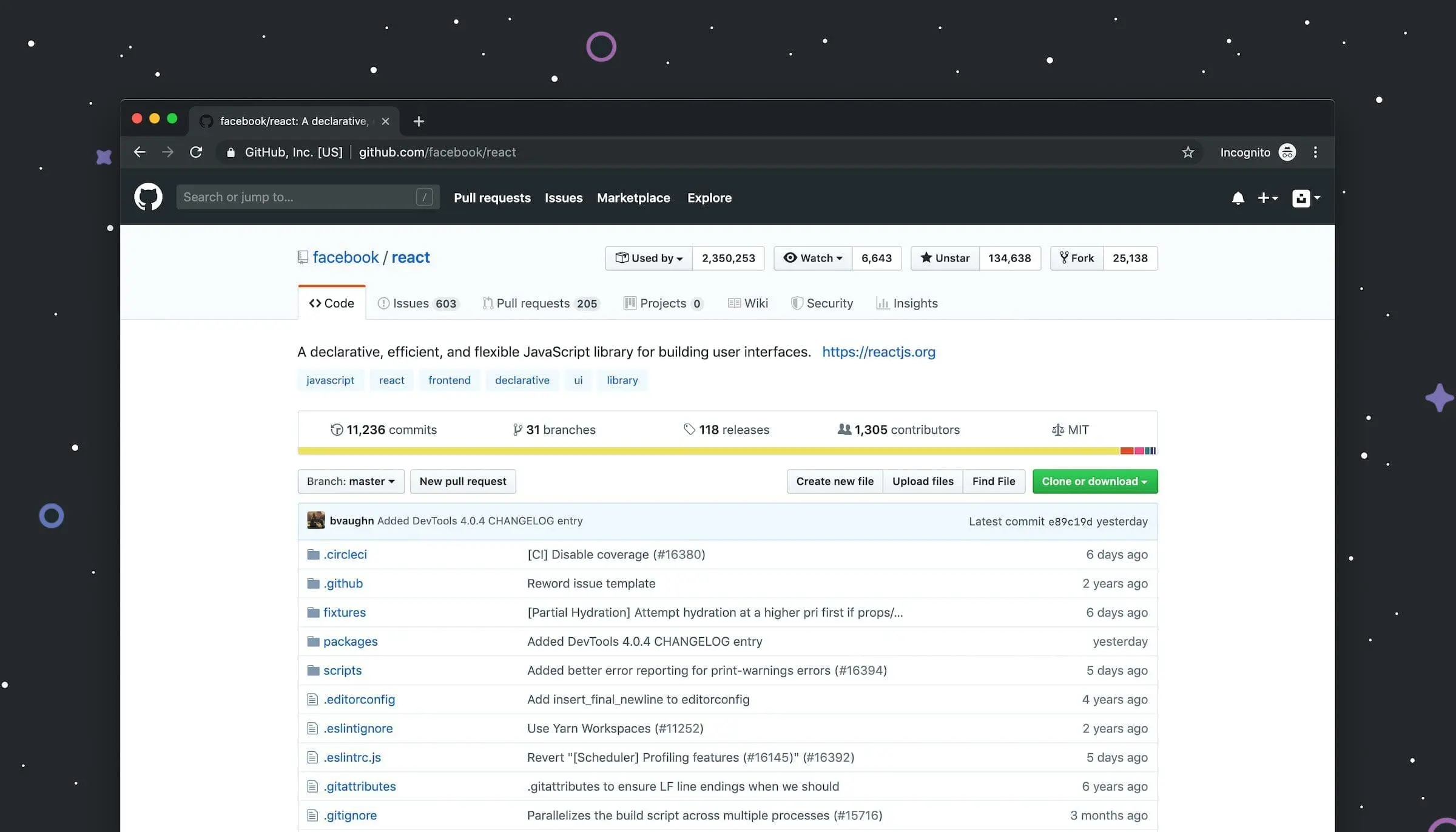Code
Your 2023 Guide to Choosing the Best JS Framework – React or Vue
When it comes to web development, JavaScript frameworks have undoubtedly become an indispensable tool. They streamline the process, providing a structured and efficient way to build web applications. The “React vs Vue 2023” debate is a hot topic among developers and companies alike.

So, what exactly are these frameworks? Well, they’re essentially collections of JavaScript code libraries that provide developers with pre-written code to use for routine tasks. Imagine having a toolkit with all the necessary tools arranged in a particular order. You know what each tool does and where to find it, making your task smoother and faster. That’s what a JavaScript framework does for web developers.
A Look at JavaScript Frameworks
Two such tools that often become the topic of discussion in web development circles are Vue and React. Both have made their mark in the industry, proving to be invaluable for creating interactive and user-friendly web interfaces. However, the choice between the two is not always clear-cut and depends on a variety of factors, including project requirements, team expertise, and personal preference.
In the following sections, we’ll delve into a detailed comparison of Vue and React, analyze their strengths, and help you understand which of these might be a better fit for your project. So, let’s dive in!
Vue vs React: A Snapshot
When it comes to choosing a JavaScript framework, the first step is understanding what each one brings to the table. Let’s take a brief look at Vue and React.
Vue: Introduced by former Google engineer Evan You in 2014, Vue.js is a progressive JavaScript framework. This means you can adopt it gradually, starting with a single component or library and eventually scaling up to use more of its offerings as needed. Vue’s design was heavily influenced by Angular and React, and it borrows features from both, making it somewhat of a hybrid framework. Its main strength lies in its simplicity and flexibility, making it a favorite among developers who prefer clear syntax and ease of integration.
React: React.js, commonly just called React, was developed by Facebook and released in 2013. It was a game-changer in the JavaScript world, introducing a virtual DOM and component-based architecture. React allows developers to create large web applications that can change data, without reloading the page. It is highly scalable, maintainable, and excellent for complex applications with vast data changes. React has a more substantial backing community, with countless tutorials, resources, and third-party plugins available.
Both Vue and React offer commendable speed and performance. However, their differences in design philosophy, community support, learning curve, and usage in industry make them suitable for different scenarios and projects. In the upcoming sections, we’ll dissect these aspects to help you make an informed choice.
Ease of Learning
An essential aspect when choosing a JavaScript framework is how steep the learning curve is. It’s important to evaluate how quickly your team can get up to speed and start producing quality work.
When we talk about Vue, one of its major strengths is its simplicity. Its straightforward design, clear documentation, and use of plain JavaScript make it less intimidating for beginners. Vue’s HTML-based template syntax allows developers to write render functions but doesn’t necessitate them, which makes it more comfortable to those coming from a pure HTML background.
On the other hand, React is more robust and flexible. However, this flexibility can make React somewhat harder to learn at first. It uses JSX (a syntax extension that allows HTML with JavaScript) instead of regular JavaScript or HTML, which could be a new concept for some developers. Despite this, once the basic concepts are grasped, developers often appreciate the flexibility and power that React provides.
The learning curve shouldn’t be the sole determinant in choosing a framework, especially for a long-term project. It’s essential to consider other factors such as the project’s requirements, the scalability of the framework, and the type of application you’re building.
It’s also important to remember that a learning curve is just that—a curve. With time and practice, developers can become proficient in either framework. And if you’re looking to develop in React, we at heyreliable.com can help you navigate that curve and deliver an exceptional React website for your design.
Who Uses What?
Understanding which companies use Vue or React can give you some insights into the practical applications and advantages of each framework. It can also help you make a decision based on what fits best for your specific project or business model.
Let’s start with React. As it was developed by Facebook, it’s no surprise that Facebook uses it extensively. But beyond that, many other notable companies have leveraged React in their technology stacks. Among them is Netflix – the leading streaming service. Netflix has opted for React due to its ability to facilitate high-speed rendering, enhance user interfaces, and provide superior SEO performance. Other prominent names in the React club include Instagram, Airbnb, and WhatsApp, to name a few.
On the other hand, Vue has also managed to attract attention from some well-known names in the industry. Xiaomi (the Chinese electronics giant), Alibaba (the world’s biggest global marketplace), and Grammarly (the popular writing enhancement platform) all have Vue.js in their tech stacks. Vue’s simplicity, combined with its progressive nature, makes it an appealing choice for these companies.
Understanding who uses what framework can provide a sense of the framework’s capabilities and its fit for different types of projects. However, keep in mind that every project is unique, and the right framework largely depends on the specific requirements of the project.

Comparing Frameworks: Navigating the Landscape
The JavaScript world isn’t just about Vue and React. Other players like Angular, Svelte, and Next.js also have a significant presence. Let’s take a brief look at how Vue and React stack up against these frameworks.
Vue vs Angular: Angular, developed by Google, is a robust, full-featured framework. Compared to Vue, Angular has a steeper learning curve due to its use of TypeScript and complex syntax. However, it’s well-suited for large-scale, enterprise-level applications. Vue, with its simplicity and flexible architecture, is easier to learn and integrate, making it more suitable for smaller projects or those with tight deadlines.
Vue vs Svelte: Svelte is a newer entry in the field. Unlike Vue, Svelte compiles your code to tiny, framework-less vanilla JS, which leads to smaller bundles and faster load times. However, Vue’s larger community and extensive documentation might be more appealing to many developers.
Vue.js vs React.js: React.js is used to build user interfaces but each comes with its unique strengths. While Vue.js is praised for its simplicity and straightforwardness, React.js stands out with its robust ecosystem and flexibility. The React.js community is vast and active, constantly improving and adding new features. In comparison, Vue.js offers a more opinionated solution which could be advantageous for smaller projects or for developers seeking clear guidance. Both have their merits and your choice would ultimately depend on the specific needs of your project.
Angular vs React: Angular is a full-fledged MVC framework, whereas React is a library focused on building UI components. Thus, React offers more flexibility but might require additional libraries for state management and routing. On the other hand, Angular’s all-in-one approach can be both a blessing and a curse, offering more out of the box but with a steeper learning curve.
Comparing these frameworks should give you a better understanding of where Vue and React fit in the broader ecosystem. The choice between them often comes down to specific project needs, team expertise, and long-term goals.
That’s also why we at heyreliable.com specialize in React. Its scalability, flexibility, and strong community support make it an excellent choice for various projects. Next, we’ll explore why many choose React over Vue and how that could benefit your project.
Why React?
In the ongoing Vue vs React debate, React often comes out as the preferred choice for many developers and companies. Let’s explore why.
React’s component-based architecture offers a significant advantage – it allows for code reuse, which can significantly speed up development time and ensure consistency across your application.
The introduction of a virtual DOM in React was a game-changer. It allows for efficient updates and rendering, making applications fast and responsive. This aspect is particularly beneficial for applications that require real-time updates or handle complex user interactions.
Another advantage is React’s extensive community support. Being around since 2013 and backed by Facebook, React has a vast and active community. This means more resources for learning and troubleshooting, more third-party libraries and tools, and a larger pool of experienced developers.
React’s flexibility is also a key strength. It’s unopinionated about how you structure your application, giving you the freedom to make decisions that best suit your project requirements and preferences. This flexibility can be powerful, but it also means the responsibility is on the developers to make the right architectural choices.
Moreover, React has shown great potential in terms of job opportunities. Many big companies prefer using React, and hence, the demand for React developers is continually on the rise. All these factors contribute to why React is often chosen over Vue. However, the choice is largely dependent on the specific needs of your project.
Choosing the Right Framework in 2023
The JavaScript ecosystem is ever-evolving, and 2023 is no exception. In such a dynamic landscape, making the right choice for your project can seem daunting. Here’s a guide to help you navigate through.
- Project Requirements: Consider the complexity and scale of your project. For small to medium-scale projects, Vue’s simplicity might serve you well. For larger, more complex projects, React’s robustness and scalability can be beneficial.
- Learning Curve: If you’re working with a team of beginners or developers transitioning from other languages, Vue’s simplicity and clear syntax could be advantageous. For experienced JavaScript developers, React can provide a more powerful and flexible development experience.
- Community and Ecosystem: React shines with its extensive community, wide range of third-party libraries, and active development. On the other hand, Vue, though smaller in community size, is growing steadily and offers a more than adequate range of resources.
- Performance: Both React and Vue offer excellent performance. React’s virtual DOM and Vue’s reactive data-binding system ensure fast and efficient updates.
- Future Trends: React continues to dominate the job market and has a larger community, making it a safer bet for the future.
It’s important to note that there’s no one-size-fits-all solution. The right framework for your project is the one that best suits your specific needs and constraints.
That being said, React has consistently proven to be a powerful tool for building dynamic, high-performance web applications. That’s why we at heyreliable.com have chosen to specialize in React. We’re ready to take your designs and transform them into a fully-functioning React website that meets your every need. In the next section, we’ll wrap things up and explain why heyreliable.com is the go-to partner for your React projects.

Why Choose Hey Reliable for Your React Projects
Choosing the right technology is just the first step in your project’s journey. What’s equally important is having a reliable, skilled, and passionate team to bring your vision to life. That’s where heyreliable.com comes in.
At heyreliable.com, we don’t just understand React—we live and breathe it. We’re fully immersed in the world of React, staying on top of the latest trends, tools, and best practices. Our hand-coded, scratch-built approach means we don’t rely on converter tools or plugins. We believe in the value of quality, bespoke coding—tailoring each line to fit your project’s unique needs.
As a dedicated developer partner, we work closely with agencies and freelancers, providing the technical expertise needed to convert designs into functional, dynamic websites. We understand that every project is unique, which is why we take the time to understand your goals, challenges, and needs, before we write a single line of code.
But we don’t stop at coding. We’re committed to delivering an end product that you can be proud of. We’ll work with you through each step of the process, providing updates, addressing concerns, and making adjustments as needed. We’re not just a service provider—we’re a partner, committed to your project’s success.
So, if you’re looking for a team that understands React, is passionate about code, and cares about your project, look no further than heyreliable.com. We’re ready to take your designs and transform them into a fully-functioning React website that meets your every need. Get in touch with us today, and let’s start making your vision a reality!




